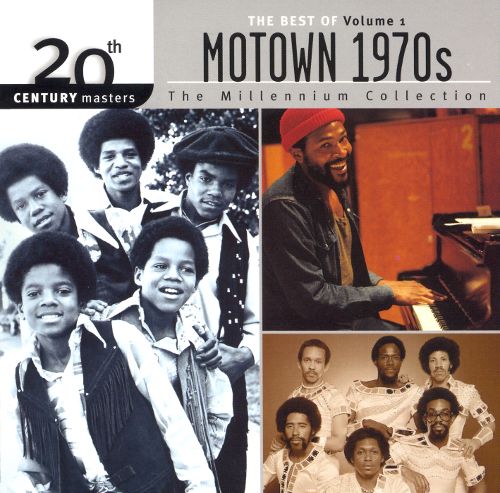Great Soul Albums Of The 1970s – Motown
Although Motown, Stax and Atlantic all boasted phenomenally successful long-playing records in the 1960s, they did not achieve the critical longevity afforded contemporary work by the likes of Bob Dylan, The Beatles, and The Beach Boys.

As with the majority of albums from the era, the typical Motown release consisted of a couple of hit singles, padded out to forty minutes with covers and not overly subtle variations on the hits. The key releases from Stax Records in the mid-60s, such as Otis Blue: Otis Redding Sings The Blues, were despite their critical acclaim predominantly covers.
By the dawn of the 1970s, concept albums – records with a consistent message and theme which spread across all the included songs – had become widespread amongst rock and pop records. The Beatles and Frank Zappa had led a move towards studio experimentation, using sound collages and snippets of songs to form a coherent whole, and most non-soul artists were writing albums as an entire piece, spending time on their creation and not rushing out a record to capitalise on a hit single.
Marvin Gaye
From its mid-60s peak, Motown had fallen on relatively hard times. Whilst still producing massive hits for the likes of The Jackson 5, the company – with the exception of the psychedelica-influenced work of Norman Whitfield with The Temptations – had not moved with the times, and some of its biggest stars from the 1960s had seen their stars beginning to decline.
Amongst those dissatisfied with their music was Marvin Gaye. The singer had recently suffered through the death of his friend and duet partner Tammi Terrell to a brain tumour, and was distressed by the letters his brother was sending from the war in Vietnam (see Divided Soul: The Life Of Marvin Gaye by Marvin Gaye).
What’s Going On
Working with Al Cleveland, and Obie Benson of the Four Tops, Gaye in 1970 wrote and recorded the single ‘What’s Going On’. After lobbying his brother-in-law and Motown head Berry Gordy – who was against its release – the single was eventually released in January 1971 and became Motown’s fastest-selling single to date.
Gordy weakened and allowed Gaye to produce a whole record in the same vein, and the album What’s Going On was released in May 1971. A commercial and critical success, the album was notable for its relaxed song structure, political lyrics, and the format of the songs, which ran into one another – a clear break from the collection of single format which Gordy had insisted on from Motown’s beginnings.
Gaye later released further concept albums, the sexually-charged Let’s Get It On in 1973 (which was an even bigger commercial success than What’s Going On), 1976’s follow-up I Want You, and in 1978 Here, My Dear, an album about the collapse of his marriage to Anna Gordy.
Stevie Wonder
After allowing Marvin Gaye unprecedented creative freedom, other Motown artists looked to Berry Gordy for the same privilege, chief amongst which was the twenty-one year old Stevie Wonder. One of the most successful single acts of Motown’s late 60s period with a succession of top ten hits – most of which he had co-written – Wonder was looking to fully explore his musical ideas.
Allowed more freedom for 1971’s Where I’m Coming From, Wonder’s hopes were dashed somewhat when the album flopped. When his contract came up for renewal, Wonder managed to secure a deal which enabled him full creative control, and he released the first of these records, Music Of My Mind, in early 1972.
Wonder followed the mild success of that record with the run of albums which made his reputation: Talking Book, Innervisions, Fulfillingness’ First Finale, and Songs In The Key Of Life. Their critical and commercial success surpassed that of any other Motown artist, and their political, social, and topical lyrical content established soul music as the key proponent of songs of meaning in the early to mid-70s.
Despite the success of Gaye and Wonder, Motown’s key output remained in the singles market, with the Jackson 5, The Commodores and The Temptations still providing massive success. Other soul artists and labels, however, more fully embraced the social aspect of the music, and begun to deplete Motown’s presence in the market.




